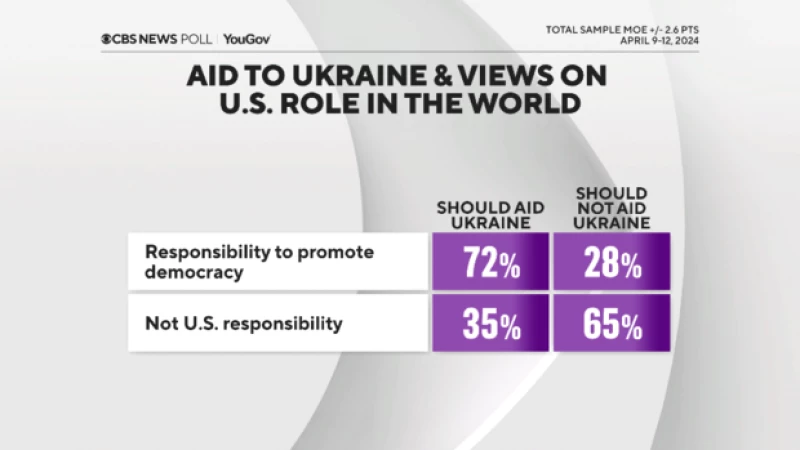Views about aid to Ukraine are partly a reflection of how Americans see Russia, the U.S.' role in the wider world, and given the circumstances, some of that view is informed by how well they remember the Cold War.
And more immediately, they're partisan — with splits within the GOP and the continued influence of former President Donald Trump on the party.


There are the differences within the Republican Party, where we see at least one indicator of the influence of Donald Trump:
For information about the Ukraine-Russia conflict, Republicans put their trust of Donald Trump higher than the U.S. military/Pentagon; higher than conservative media sources; and far more than the U.S. State Department.
Republicans who trust Trump are less likely to back Ukraine aid than those who trust the Pentagon.
Self-identified "MAGA" Republicans almost entirely trust Trump for information, and are especially opposed to aid — even more so than non-MAGA Republicans.
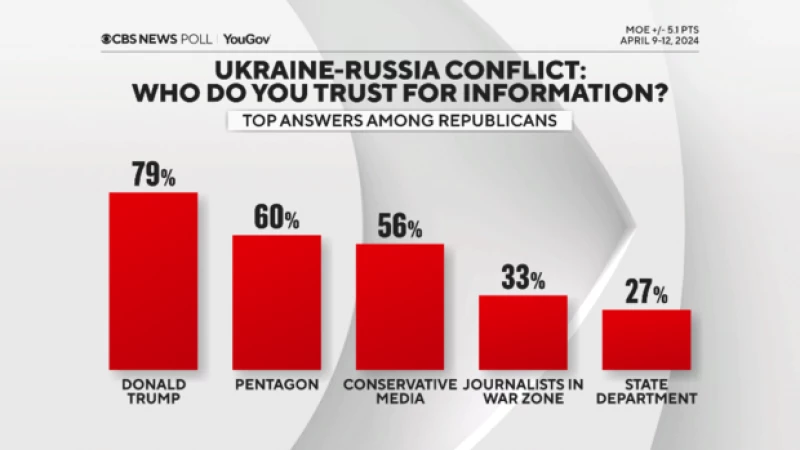
(For context, Democrats who trust Joe Biden also trust the Pentagon as much, and they also largely trust the State Department and journalists in the war zone.)
Aid, Russia, and the US role in the world
Perceptions of Russia as an enemy to the U.S. are shifting, impacting views on aid to Ukraine. Interestingly, age seems to play a role in these perceptions, with older Republicans and Democrats more likely to view Russia as an enemy compared to younger generations.
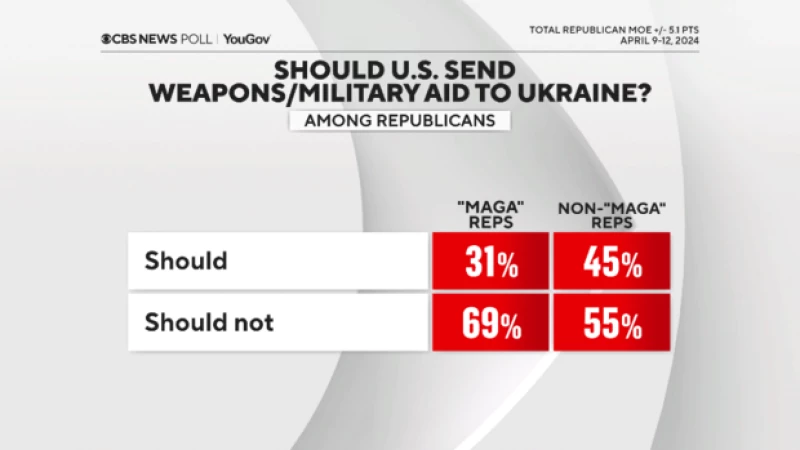
This difference in perspective may be linked to experiences during the Cold War era.
Interestingly, those who believe the U.S. emerged victorious in the Cold War against the Soviet Union are more inclined to consider Russia an adversary today and are more supportive of providing aid to Ukraine.
Individuals over the age of 50 are more likely to hold this belief.
Conversely, those who do not recall the Cold War well are less likely to support U.S. aid to Ukraine at present.
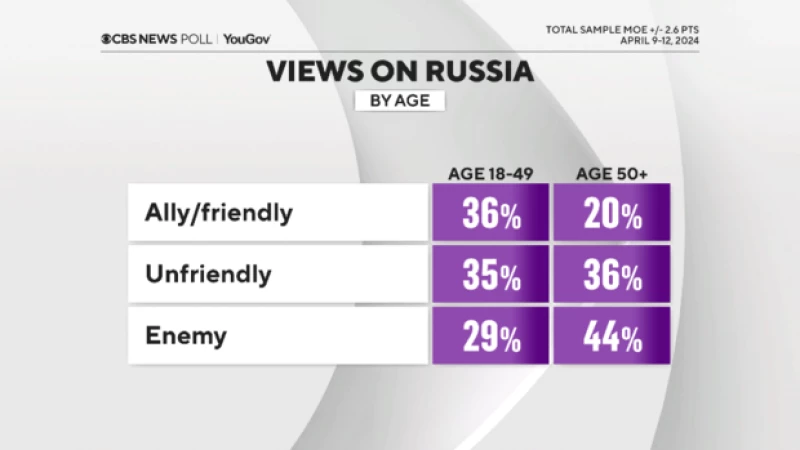
Memories of the Cold War are varied among Americans, with 3 in 10 stating they do not remember well enough to determine if the U.S. emerged victorious or not.
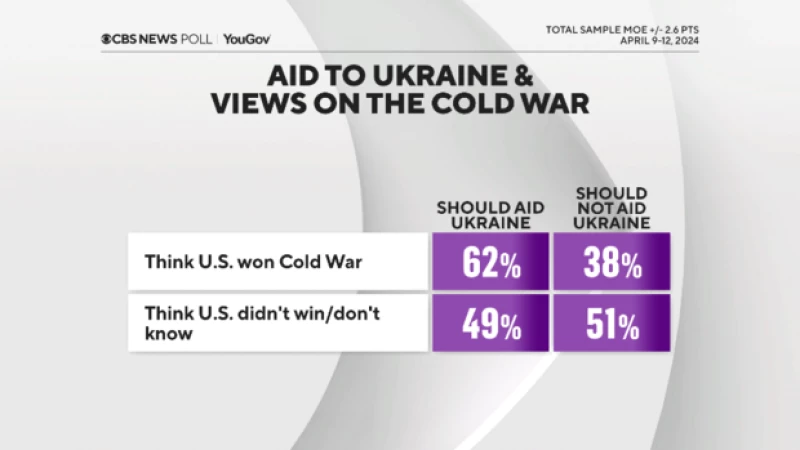
Furthermore, the perceived effectiveness of aid in halting Russian military actions in Europe directly correlates with support for such aid today.
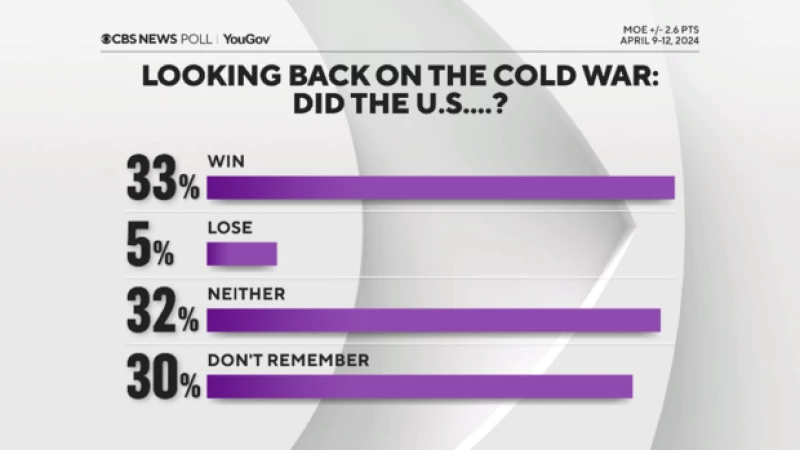
Support for aid to Ukraine is influenced by various factors, with those viewing it as a moral issue or believing in U.S. responsibility for promoting democracy worldwide showing higher approval.
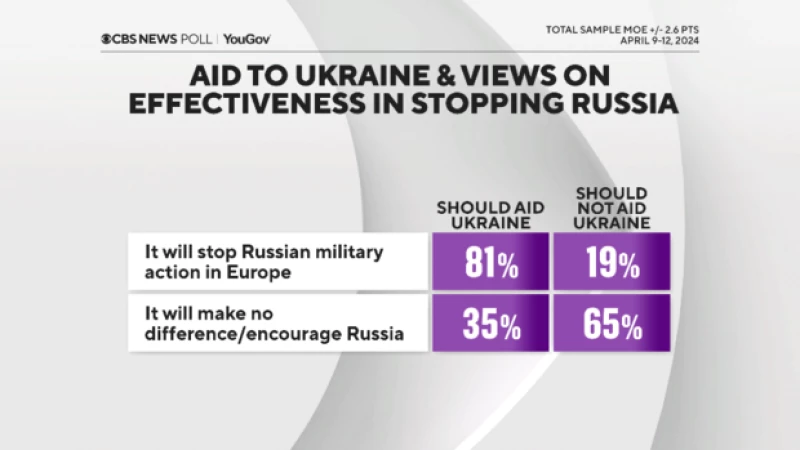
The CBS News/YouGov survey involved 2,399 U.S. adult residents interviewed from April 9-12, 2024. Data was weighted by gender, age, race, education, and past vote based on U.S. Census information. The margin of error is ±2.6 points.
